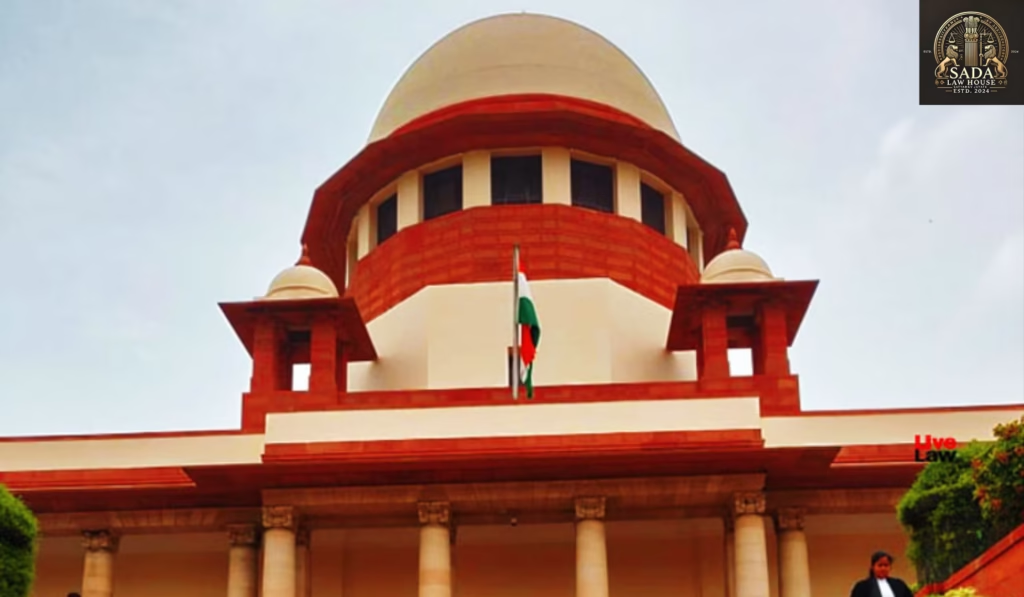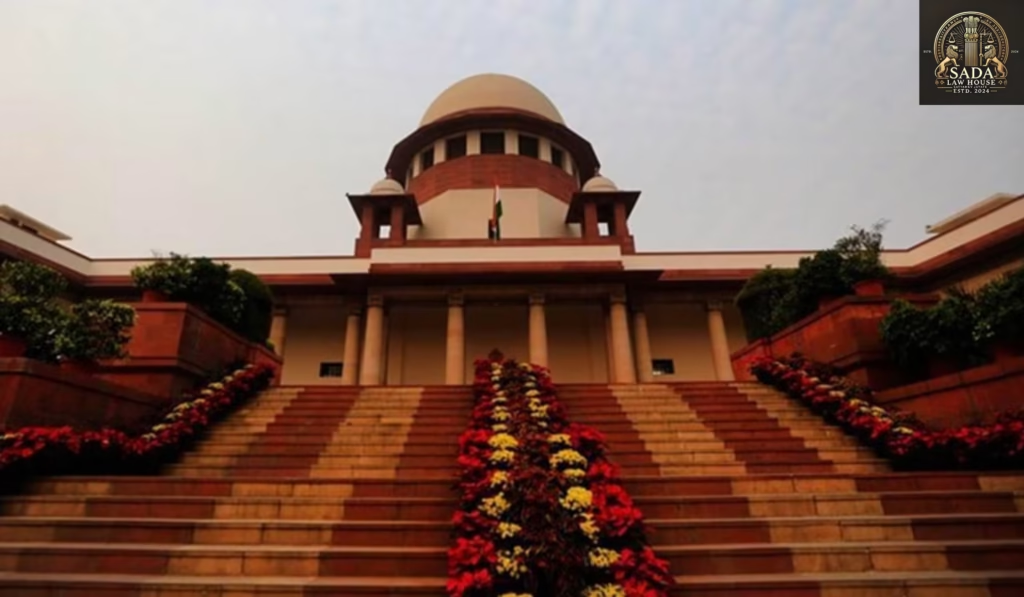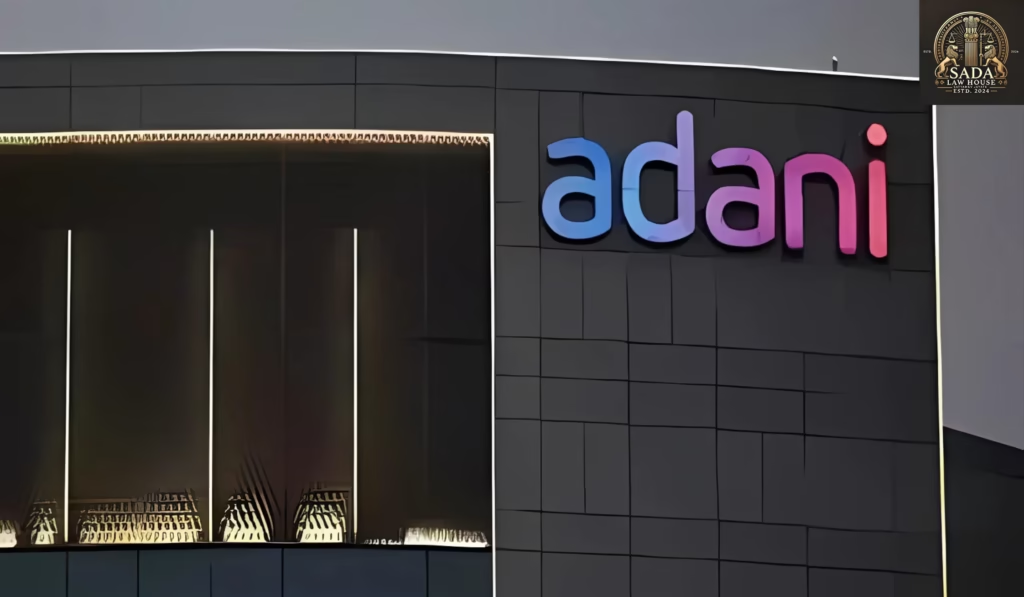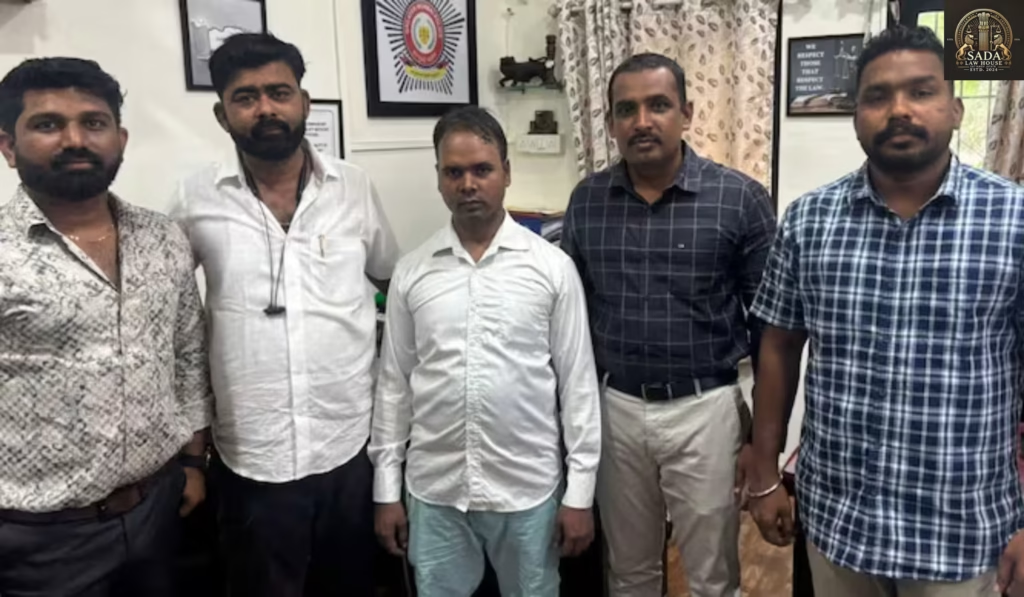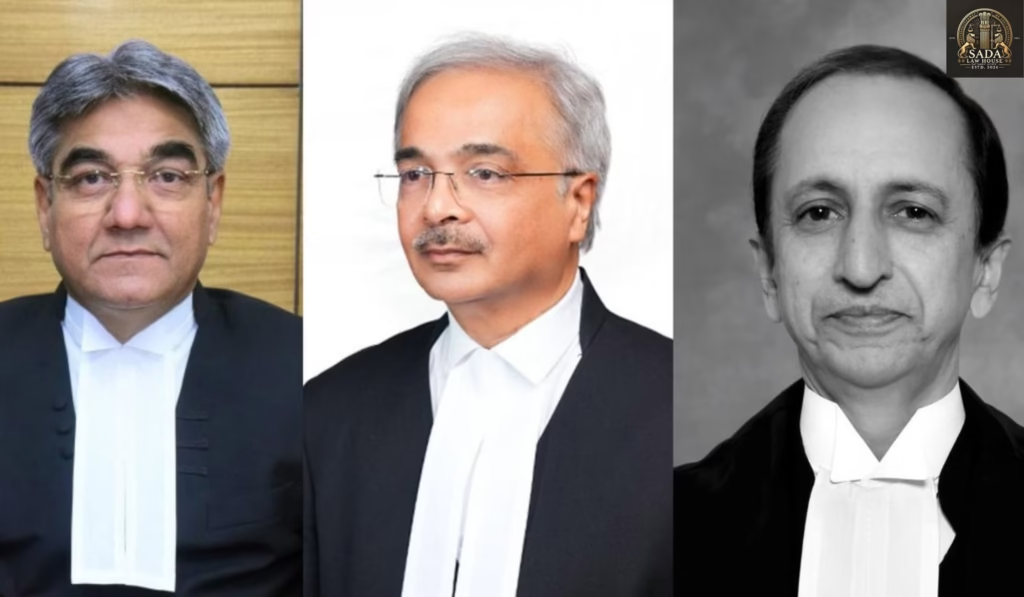Supreme Court Clarifies Order VII Rule 11: Plaints Cannot Be Rejected Solely Due to One Barred Relief
Trending Today Supreme Court Clarifies Order VII Rule 11: Plaints Cannot Be Rejected Solely Due to One Barred Relief Supreme Court Urges Exclusive Special Courts to Expedite UAPA and MCOCA Trials Supreme Court Upholds Adani Power’s Right to Compensation for Regulatory Cost Hike; Dismisses JVVNL Appeal NCLT Dismisses Insolvency Plea Against Dunzo Filed by Invoice Discounters Supreme Court Urges Elite Couple to Resolve Child Custody Dispute Over Coffee Second Bomb Threat in a Week Disrupts Mumbai Airport Operations Supreme Court Collegium Recommends Three New Justices, Appoints Five High Court Chief Justices in Historic Reshuffle JOB OPPORTUNITY AT CHAMBERS OF SHAHRUKH EJAZ JOB OPPORTUNITY AT KANDIVALI EDUCATION SOCIETY’S SHRI JAYANTILAL H. PATEL LAW COLLEGE JOB OPPORTUNITY AT GEHI LAW Supreme Court Clarifies Order VII Rule 11: Plaints Cannot Be Rejected Solely Due to One Barred Relief PRABAHAT KUMAR BILTORIA 28 May 2025 The Supreme Court clarifies that a plaint cannot be rejected under Order VII Rule 11 CPC just because one relief is barred, provided other valid causes of action exist. Read the latest legal update with expert analysis. Key Ruling on Order VII Rule 11 CPC by the Supreme Court The Supreme Court of India has ruled that a plaint cannot be rejected merely because one of the reliefs sought is barred by law, as long as the plaint discloses other maintainable reliefs based on independent causes of action. Understanding Order VII Rule 11 of the Civil Procedure Code As per Order VII Rule 11 of the Civil Procedure Code (CPC), a plaint can only be dismissed if, on a plain reading, it discloses no cause of action, is barred by law, is undervalued, or lacks proper court fees. The Court emphasized that this provision does not allow for selective severance of reliefs if they arise from different factual situations. Case Background: Agricultural Land Dispute and Revoked Power of Attorney The case involved an appellant who purchased agricultural land and later took a ₹7.5 crore loan from the respondent. Two unregistered documents—a sale agreement and a power of attorney—were executed in favor of the respondent. These documents were later revoked. However, in July 2022, the respondent executed registered sale deeds transferring the property to himself and others. Civil Suit and High Court Dismissal The appellant filed a civil suit seeking a declaration that the sale deeds were invalid and also requested possession and injunctions. However, the Rajasthan High Court dismissed the plaint entirely, holding that since the first relief was not maintainable, the suit should fail altogether. The High Court did not consider the triable issues relating to the second relief. Supreme Court’s Clarification on Rejection of Plaints Overruling the High Court, the Supreme Court bench of Justices J.B. Pardiwala and R. Mahadevan observed that the dismissal was improper. Justice Mahadevan noted that distinct causes of action supported by separate facts must not be severed simply because one relief appears untenable. If a plaint presents any triable issue, it must proceed to trial. Reference to Central Bank of India v. Prabha Jain The Court relied on the precedent set in Central Bank of India v. Prabha Jain, emphasizing that partial rejection of plaints is impermissible. In that case, the Court held that if a court finds one relief permissible and another potentially barred, it should not comment on the barred relief at the Order VII Rule 11 stage, as the plaint must be treated as a whole. Final Judgment and Legal Takeaway The Supreme Court concluded that the trial court was correct in identifying triable issues, and the High Court erred by rejecting the plaint entirely. The ruling reaffirmed that under Order VII Rule 11 CPC, courts must focus solely on the contents of the plaint during the initial stage and cannot delve into the merits of the case. Conclusion: A Landmark Ruling Upholding Access to Justice This decision marks a significant development in Indian civil litigation, reinforcing that access to justice should not be curtailed by technical interpretations. As long as a plaint raises legitimate, triable issues—even if one relief fails—it deserves its day in court. Leave a Reply Cancel Reply Logged in as Sada Law. Edit your profile. Log out? Required fields are marked * Message* Live Cases Supreme Court Clarifies Order VII Rule 11: Plaints Cannot Be Rejected Solely Due to One Barred Relief Supreme Court Clarifies Order VII Rule 11: Plaints Cannot Be Rejected Solely Due to One Barred Relief Sada Law • May 28, 2025 • Live cases • No Comments Supreme Court Urges Exclusive Special Courts to Expedite UAPA and MCOCA Trials Supreme Court Urges Exclusive Special Courts to Expedite UAPA and MCOCA Trials Sada Law • May 28, 2025 • Live cases • No Comments Supreme Court Upholds Adani Power’s Right to Compensation for Regulatory Cost Hike; Dismisses JVVNL Appeal Supreme Court Upholds Adani Power’s Right to Compensation for Regulatory Cost Hike; Dismisses JVVNL Appeal Sada Law • May 28, 2025 • Live cases • No Comments 1 2 3 … 5 Next »

